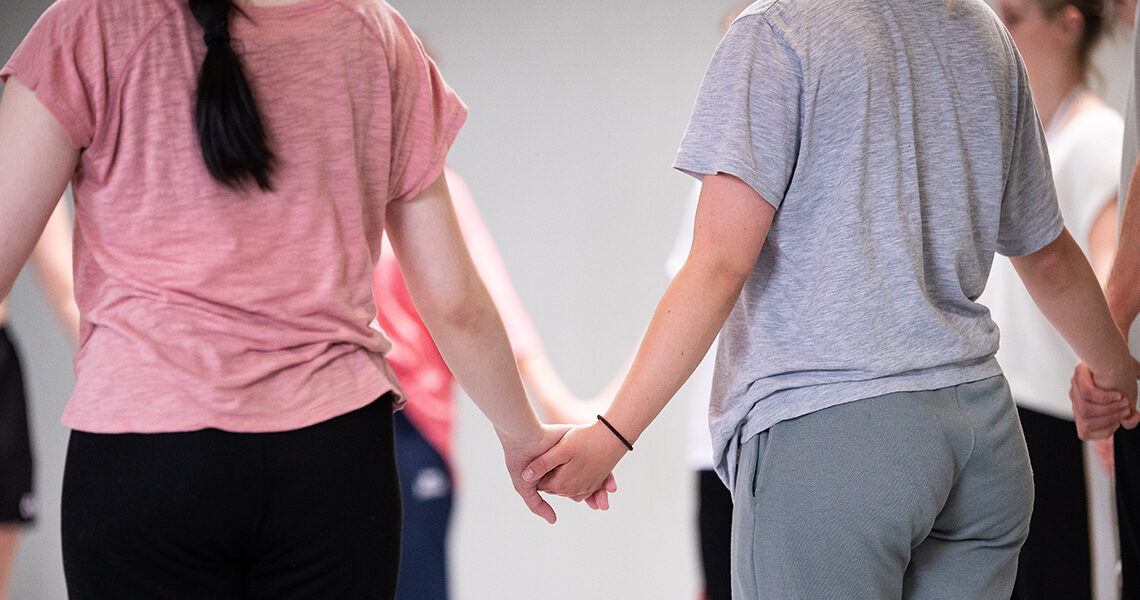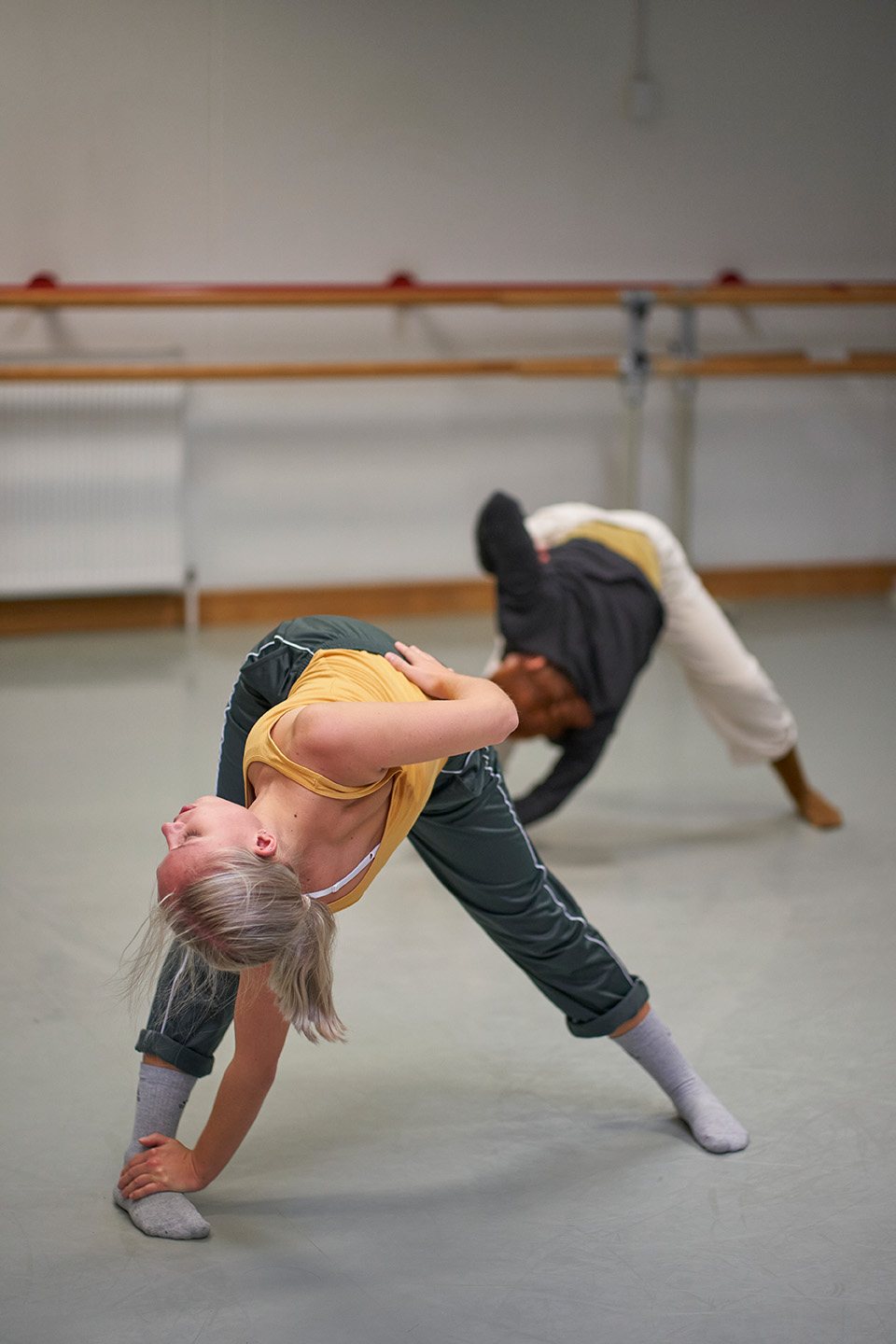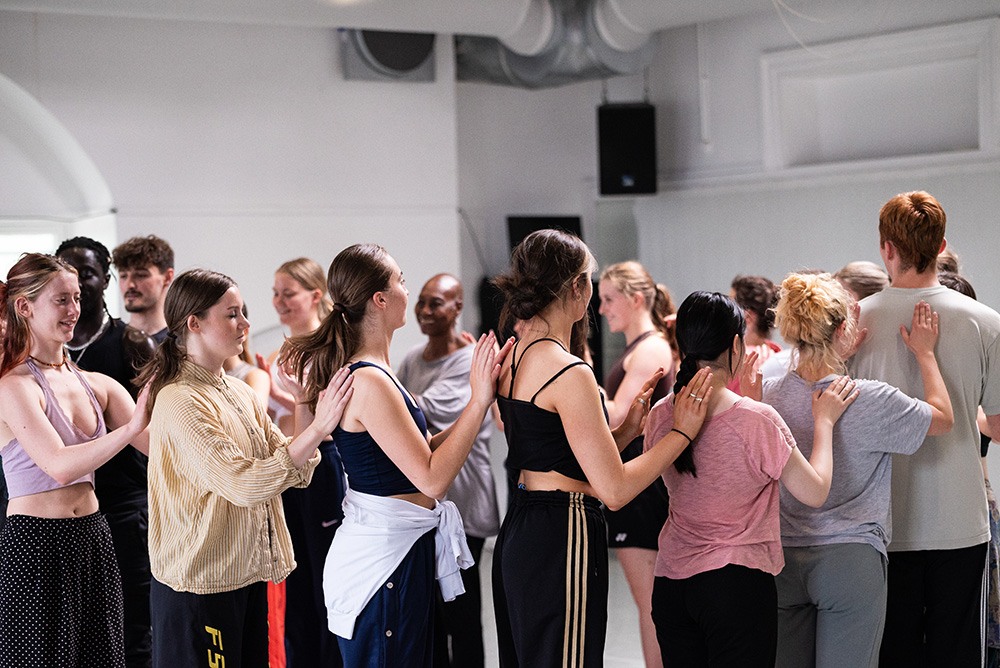
Whilst dancing boosts mood and can improve both physical and mental health, students need to be mindful of the potential risk of overexertion, burnout from their studies, and dance-related injuries.
No matter how experienced a dance student is, anyone can face pressure in the studio or at their desk during their studies.
Here at NSCD we recognise that all of these things could play a part in affecting mood and stress levels, and we make taking care of the mental health of our students a priority.
Here are some ways that we support our students…
At the start of every academic year, we recognise that students are settling into university life and for some, it may be their first time living independently away from home.
During their induction week, we introduce students to all the different teams here at NSCD, so they immediately know who to go to for support, including tips on how to settle into a new home and city.
“One of the things we do here at NSCD is help students find other students to live with, so that finding somewhere to live in a new area is one less thing to worry about for them.” Alice Eden, Student Services Administrator
Whether students want to book a one-off session, or ongoing counselling, they are welcome to schedule a confidential appointment with Ali any time they want.
The service is extremely responsive and students can usually be seen for an initial assessment within a week.
“We carry out initial assessments with students to evaluate their needs, and then decide on the best way to support them moving forward. For some students, this is just adhoc support appointments to work through specific issues, for others it’s regular weekly counselling to give them space and time to focus on their situation. Occasionally we also decide that a referral to an external service would be the best route of support." Ali Coleman, Student Support & Wellbeing Manager
Dancers need a balanced diet. Assessing nutrition and setting goals can help students to fuel the work that they are doing, improving their energy levels.

In a recent EIT Food Report, nearly eight in 10 young people said they need better advice on the link between what they eat and how this can impact their mental health.
At the start of the academic year, we invite a local sports scientist and representative from BEAT (the UK’s Eating Disorder charity) to speak with students about the importance of healthy eating for dancers, covering everything on what, when and how to eat. One-to-one support is also available for any students who feel they need help and advice on nutrition and healthy eating.
As well as offering personalised mental health support and confidential talking therapies to students, our Student Support and Wellbeing team also encourage students to remember the importance of self-care.
We recently invited students to an evening workshop where they could create their very own self-care box or ‘emotional first-aid kit.’ From keepsakes to essential oils, playlists to tasty treats, students were encouraged to include items that sparked positive thinking and memories.
Stress and performance anxiety is not uncommon for dancers just before a performance and for some it can even occur simply when thinking about getting on stage. In fact, at least 50% of performing artists, regardless of age, gender or experience level, have had problems with performance anxiety.

By getting involved in days like Uni Mental Health Day and hosting anxiety management workshops, Health and Wellbeing staff at NSCD can offer practical tips and advice to students on how to manage their anxiety.
This support, coupled with the personalised feedback students receive from their dance lecturers, can provide guidance on how to avoid negative thinking patterns and settle nerves before a performance.
Meditation and mindfulness are becoming increasingly popular. An internal study conducted by the meditation app Headspace that was published in the top mindfulness journal found that just 10 days of meditation reduced stress by 14%.
As well as reducing stress levels, meditation can help dancers by relaxing the limbic system of the brain. Slowing down this part of the brain, also known as the sympathetic nervous system or reptilian brain, can help relieve any stresses brought on by dance training, auditioning, and performing.
Over lunchtime at NSCD, students can attend optional afternoon active rest sessions led by various staff members to allow them to down-regulate and gather energy to sustain the intensity of their days.
With a background in teaching and in-depth knowledge of somatic movement, psychology, and injury support, our Bodywork Supervisor, Fabiano Culora, can advise students on how to stay motivated during times when they may be unable to rehearse or participate in class due to injury.
From muscle strengthening to mind and body learning, to getting back on track after an injury, Fabiano can help dancers and performers cope with the emotional and psychological stress of injury.
Dancing can be both physically and mentally demanding, and injuries, ill health and stress can affect people and take a toll on mental health in different ways.
Our health and wellbeing experts can help with tailoring and developing Personal Support Plans for students. From injury-related support plans to study-related support plans, staff at Northern School of Contemporary Dance can offer bespoke support to enable students in difficult circumstances to continue to meet the demands of their training.
Students can sometimes find it tricky to find ‘their tribe’ at university and meeting new people can be more daunting for some individuals than others.

During their time at NSCD, students can have a confidential discussion with Ali about any difficulties they are experiencing within their circle of friends.
“Living with people can be tough and disagreements are sometimes inevitable. Within the Wellbeing Team, we can work with students individually or as a house group to help them navigate issues or concerns that are making shared living difficult”. Ali Coleman, Student Support & Wellbeing Manager
81% of young people feel anxious about money and finances, according to the latest Young Persons' Money Index.
As the cost-of-living crisis takes hold, we know that students may find it tough to cover the cost of their weekly food shopping on top of bills, and this can have a negative impact on mental health.
We can help with various schemes and bursaries including free school meals, grocery vouchers and other financial support.